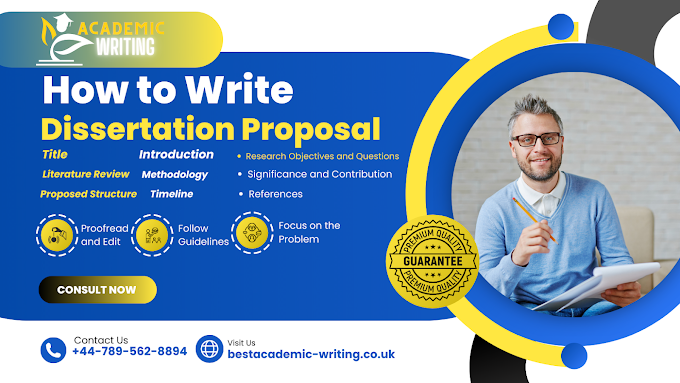Writing a perfect dissertation involves a combination of careful planning, thorough research, effective writing, and meticulous editing. Here is a step-by-step guide to help you write a successful dissertation:
Choose a Relevant Topic:
Select a topic that aligns with your interests and career goals.
Ensure that the topic is relevant to your field of study and has scope for original research.
Develop a Strong Research Question or Thesis:
Formulate a clear and concise research question or thesis statement.
Ensure that your research question is specific, measurable, achievable, relevant, and time-bound (SMART).
Conduct a Comprehensive Literature Review:
Review existing literature to understand the current state of research on your topic.
Identify gaps in the literature that your research can fill.
Create a Solid Research Proposal:
Clearly outline your research objectives, methodology, and expected outcomes.
Get feedback from your advisor to refine your proposal.
Organize Your Research and Data:
Develop a well-organized plan for collecting and analyzing data.
Use appropriate research methods and tools.
Write a Clear and Coherent Introduction:
Introduce your topic, research question, and the significance of your study.
Provide a brief overview of your research objectives and methodology.
Best dissertation writing services
Structure Your Dissertation:
Follow a logical structure with clear chapters, including an introduction, literature review, methodology, results, discussion, and conclusion.
Ensure smooth transitions between chapters.
Use a clear and formal academic writing style.
Ensure consistency in formatting, citation style, and language throughout the dissertation.
Present Your Findings Clearly:
Use tables, graphs, and charts to present data effectively.
Clearly explain your results and their implications.
Engage in Critical Analysis in the Discussion Section:
Analyze your results in the context of existing literature.
Discuss the limitations of your study and suggest areas for future research.
Conclusion:
Summarize the main findings of your study.
Emphasize the contribution of your research to the field.
Editing and Proofreading:
Edit your dissertation for clarity, coherence, and conciseness.
Check for grammatical and spelling errors.
Get feedback from peers or advisors.
Citation and Referencing:
Ensure proper citation of sources throughout your dissertation.
Follow the required citation style (APA, MLA, Chicago, etc.).
Final Review:
Conuct a final review of your entire dissertation before submission.
Ensure all components, including the abstract and acknowledgments, are in order.
Submit and Defend:
Submit your dissertation according to the guidelines provided by your institution.
Prepare for your dissertation defense, addressing any questions or concerns raised by the committee.
Remember that writing a dissertation is a challenging and time-consuming process, so it's important to start early and seek guidance from your advisor throughout the process.







